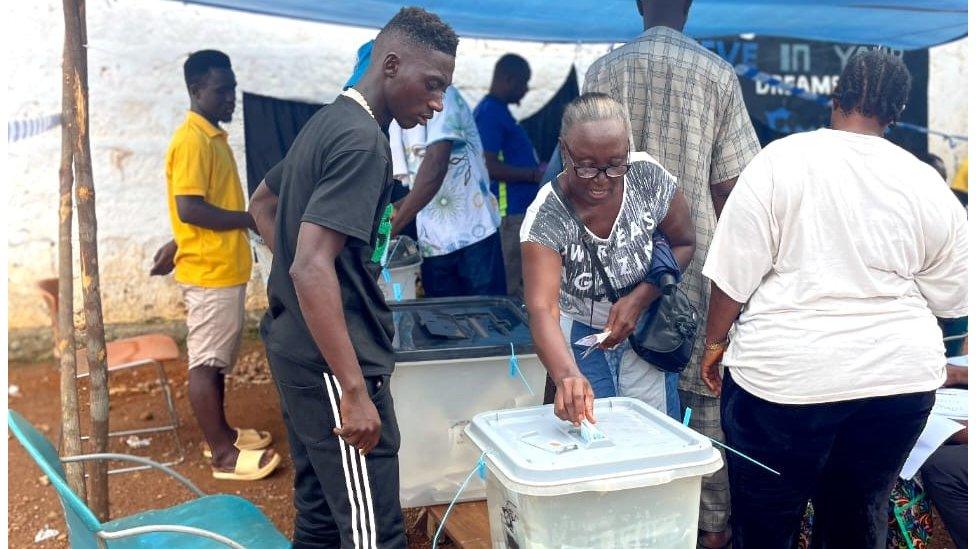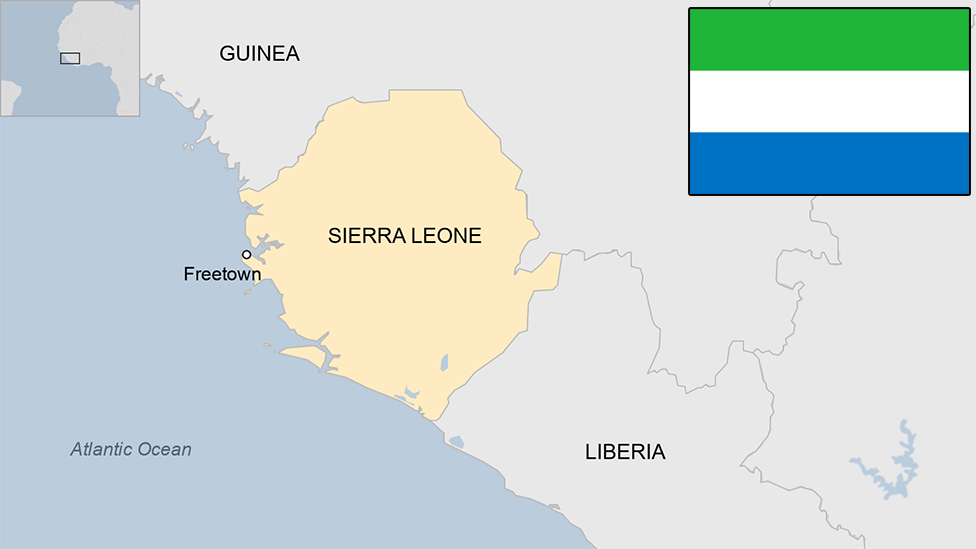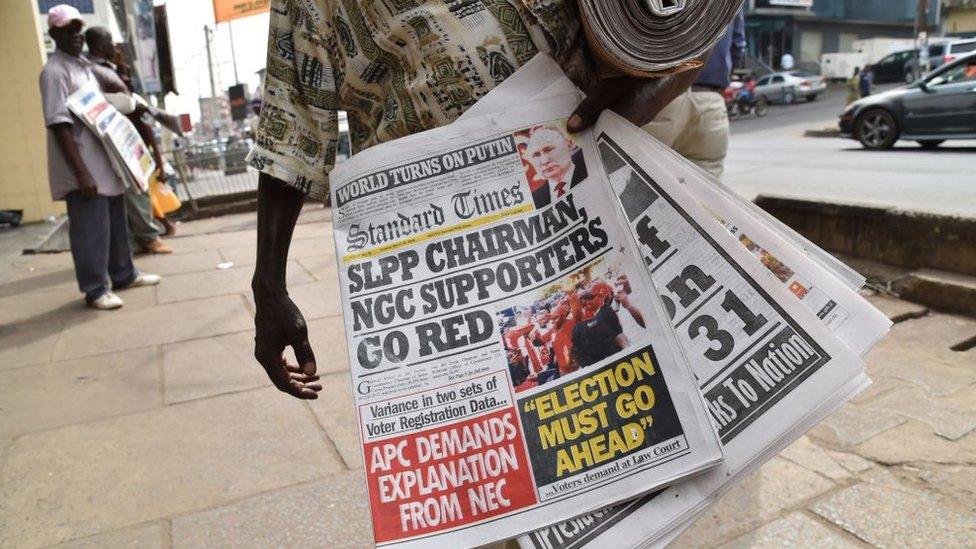Sierra Leone election results: Julius Maada Bio leading Samura Kamara
- Published

Voters on Saturday are faced with a choice between the same two leading presidential candidates as in 2018
Early results from Sierra Leone's presidential election have been branded "daylight robbery" by the main opposition challenger Samura Kamara.
He alleges that his electoral agents were not allowed to verify the ballot counting.
With the votes from 60% of the polling stations tallied, the electoral commission says that the incumbent Julius Maada Bio has a 56% share.
He has called on Sierra Leoneans to reject violence and "keep the peace".
Mr Kamara, of the All People's Congress (APC), is currently trailing on 42%. In order to win in the first round a candidate needs more than 55% of votes.
Mr Bio's success can likely be attributed to a series of strategic electoral alliances he made in the course of the campaign, including in opposition strongholds.
But European Union observers have criticised the electoral commission for a lack of transparency, and noted incidents of violence in some regions during the vote on Saturday.
The APC had previously made complaints about the conduct of the election and the electoral commission.
On Sunday, Mr Kamara said live ammunition was fired into his party's headquarters as he held a news conference. A woman there was reportedly wounded and there are fears for her life.
On Wednesday, Mr Kamara's All People's Congress (APC) alleged that one of its supporters was shot dead by police, which the police have denied.
Supporters of both main parties have been accused of attacking opponents.
Accusations of election irregularities were also being thrown on Saturday, after Mr Kamara alleged ballot stuffing and voter suppression in some parts of the country.
However, the electoral body had insisted, in a press conference, that it had mechanisms in place to ensure a fair vote. Local media reports that arrests were made.
Saturday's vote saw a high turnout, with voters telling the BBC the process was smooth despite polling stations opening hours late in many areas.
The election took place against the background of a troubled economy, the rising cost of living, and concerns about national unity.
The voters were choosing a president, MPs and councillors in the West African country's fifth election since the civil war ended in 2002.
The 11-year conflict cost an estimated 50,000 lives, but since then the country has a tradition of largely peaceful, free and credible elections, according to Marcella Samba Sesay, chairperson of the NGO National Elections Watch.
With strong party loyalty among the 3.3 million registered voters, the campaigns have focused on shoring up their parties' bases rather than articulating and debating policy issues.
However, voters have told the BBC they want to see concrete change in the country.
"I want a responsible government that will provide jobs, education, improve healthcare and also ensure food security. I expect the new president to work for the nation," Solomon Beckley from Freetown said.
Additional reporting from Azeezat Olaoluwa in Lagos and Natasha Booty in London
Related topics
- Published27 November 2023

- Published28 June 2023
